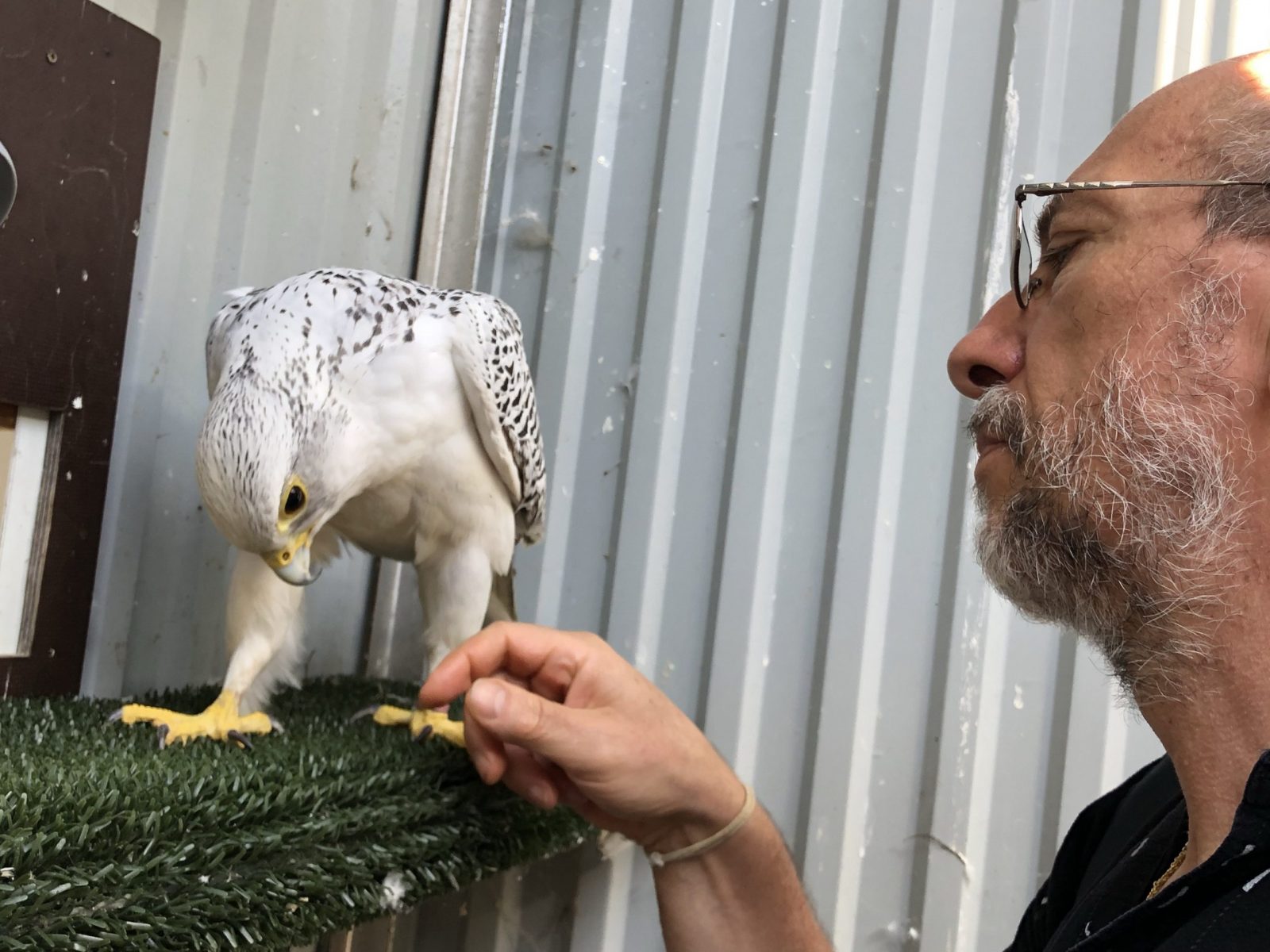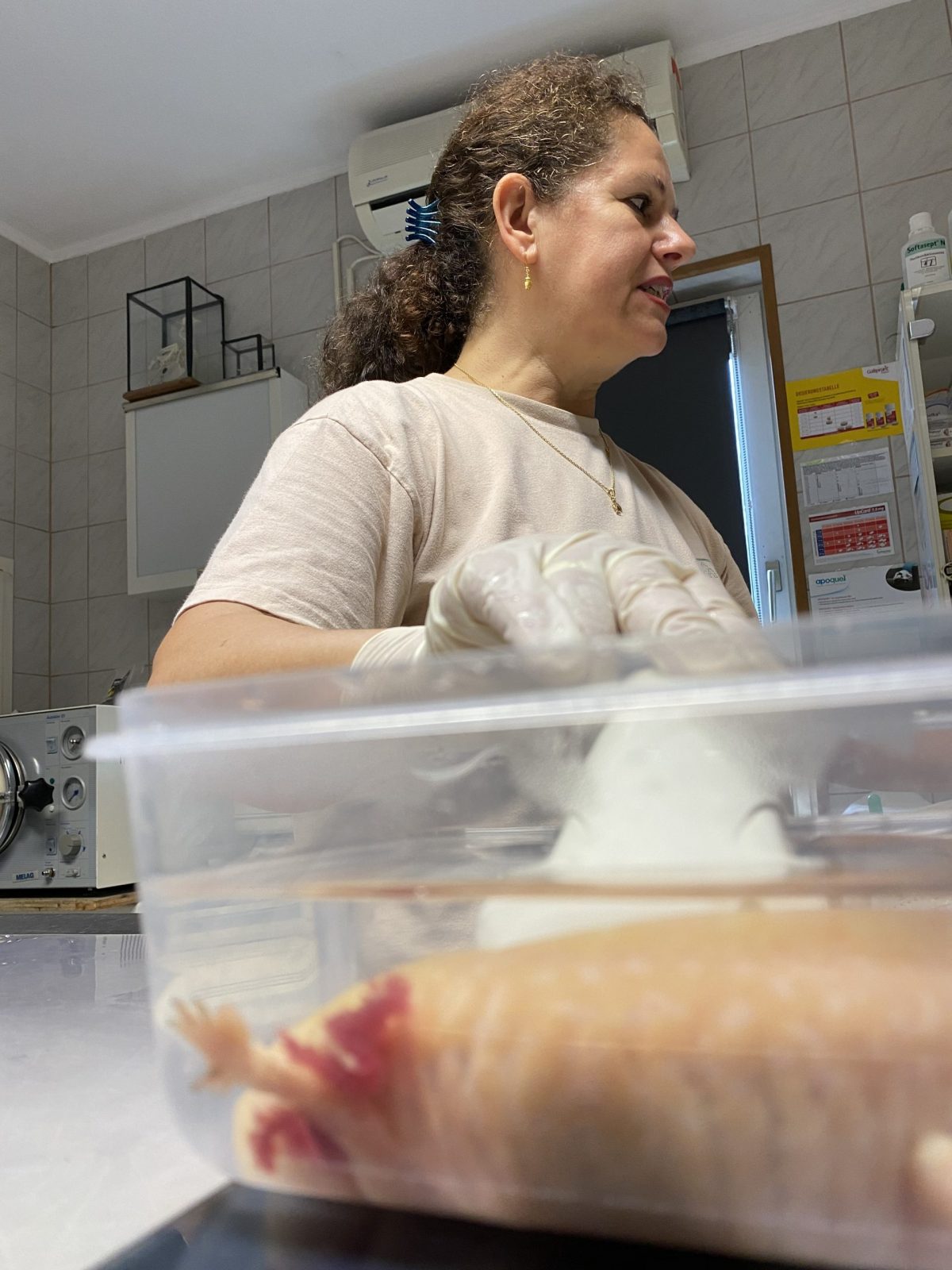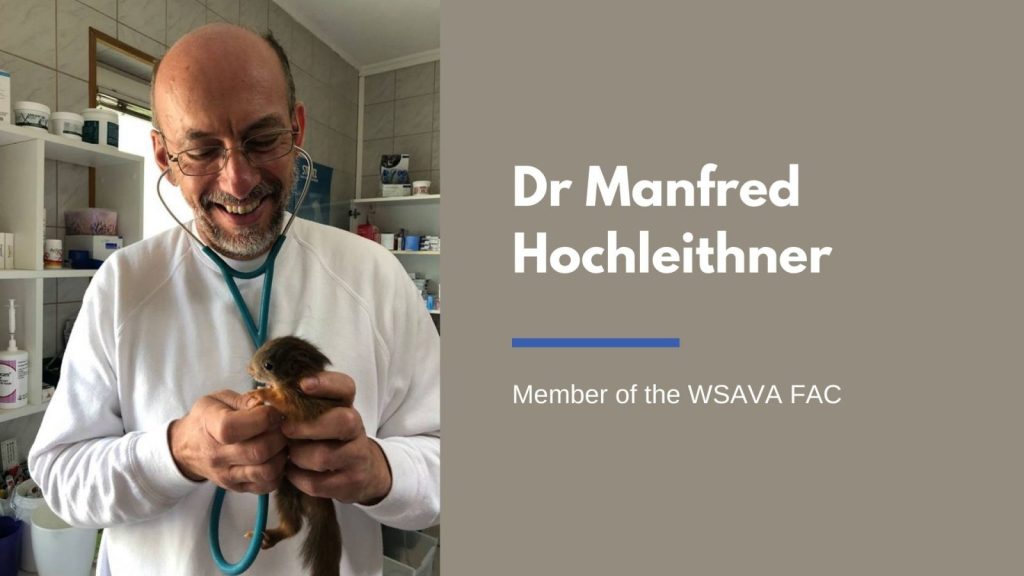Meet Dr Manfred Hochleithner of the WSAVA Financial Advisory Committee
Could you introduce yourself to our members?
I live and work in Vienna, Austria, with my wife Claudia, also a veterinarian. We own a small animal clinic. Half of our patients are exotics. When we’re not working, we love to dive and have produced a documentary for Austrian television about it.
You’ve worked in exotic medicine for more than 30 years. What do you enjoy about it?
When you work with exotics you never know what the next patient will be. It is a chance to see and learn something absolutely new every day.
773ZbCIZsyI
700
400
How has exotic medicine developed during the time you’ve been working in it?
In contrast to cat and dog medicine, exotic animal medicine began outside the universities. During the 1990s these animals started to become more popular as pets so the need for veterinarians with a knowledge of how to care for them increased. Publishers and conference organizers started to provide CE and veterinarians with a special interest in these patients who started out ‘learning by doing’ began to share their experience with each other. Avian medicine came first, followed by reptiles and small mammal. Associations for exotic medicine also started to form. A few years later, universities started to educate students in this field. Today, much more scientific research has been done and this is important because, while we had to start somewhere, exotic medicine should always be based on evidence-based research.

What types of animal do you see most often?
In Austria we see a lot of parrots. We also see tortoises and lizards and a few snakes.
How and when did you first get involved with the WSAVA?
In 1991, my friend and mentor Klaus Dreier, a former WSAVA president, invited me to participate in organizing the WSAVA Congress in Vienna. I had the honor of creating an avian medicine program. My first experience of a large international congress was fascinating and I continued to speak at WSAVA Congresses after that.
Why do you think its work is important?
The WSAVA offers a unique opportunity to compare different experiences and different approaches to veterinary problems from different cultures. At every Congress I meet new people who view problems differently and bring about solutions differently. I am able to use this diversity in discussions on other topics such as education, animal welfare or pain management.
Together with your wife, you’ve recently prepared some courses on exotic medicine for the WSAVA Academy. Why did you want to do this?
Earlier this year, we discussed the importance of continuing with the WSAVA’s CE work despite the COVID-19 pandemic and agreed that online education was the way forward.
In many parts of the world there is little veterinary care available for these patients and, while veterinarians are keen to learn how to treat them, the cost of attending congresses (when it is possible!) can make it too expensive given that exotics are a small proportion of their caseload.
This is a welfare issue as, with just a little knowledge, veterinarians can achieve a great deal for these patients. Their wounds heal quickly and often all they need is some pain medication to help them to get over the problem.

Working with Emma van Rooijen, we have put our first course, on small mammals, together with reptiles and avian medicine coming soon. We hope that our courses will equip all veterinarians with some basic knowledge to help the next hamster, tortoise or bird that needs their help.
[button title=”View the small mammals course” link=”https://academy-wsava.thinkific.com/courses/starting-small-mammals-how-to-catch-them-and-how-to-get-your-samples” target=”_blank” align=”” icon=”” icon_position=”” color=”” font_color=”” size=”2″ full_width=”” class=”” download=”” rel=”” onclick=””]

